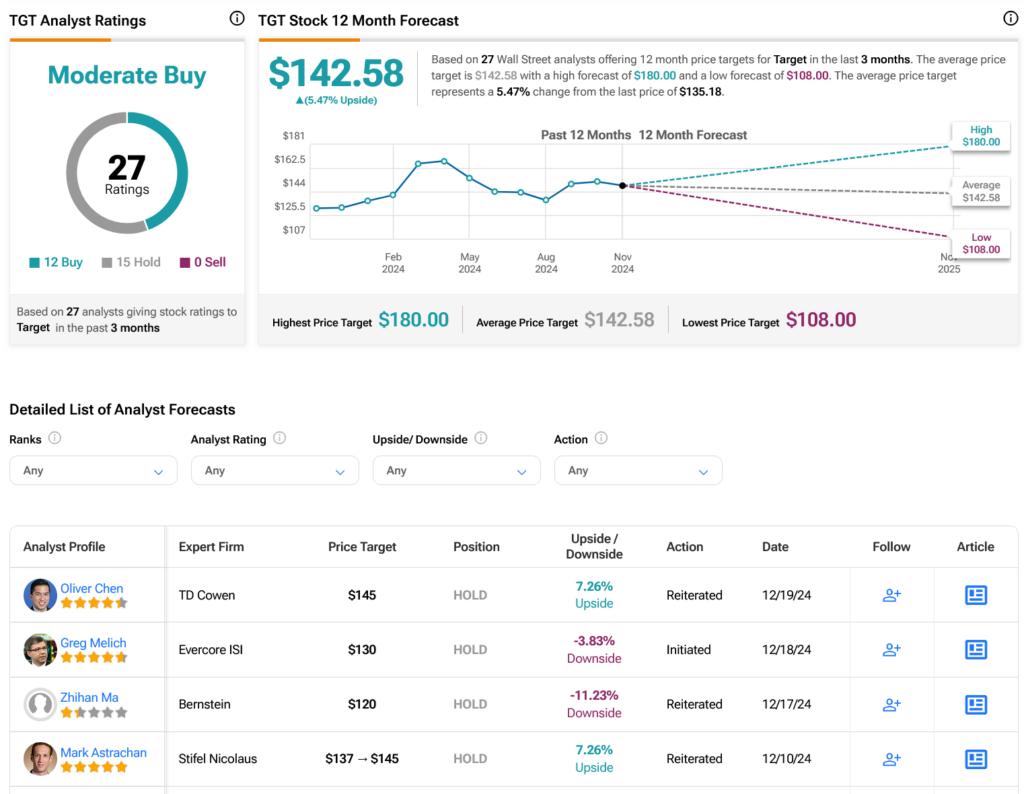So, another Christmas shopping season is in the books, and as it turned out, it turned out much better than some expected. But what was it that gave it the hand up? Did retail giant Target (TGT) win out on the strength of its huge and unconventional market blitz? Or was there more pushing the numbers here?
Elevate Your Investing Strategy:
- Take advantage of TipRanks Premium at 50% off! Unlock powerful investing tools, advanced data, and expert analyst insights to help you invest with confidence.
Indeed, the word from Mastercard (MC), based on a Reuters report, was that holiday spending was up in 2024, despite a lot of early word suggesting a ho-hum holiday at best. Spending was up 3.8% against last year, and since inflation was only up 2.7% against this time last year, not all of the extra spending can be attributed to inflation. Since earlier forecasts looked for spending to increase 3.2%, the end result was certainly positive for shoppers.
Stores also benefited from a reduced shopping season overall; with time shorter, people had less time to hem and haw and thus decided to pull the trigger more often. It also increased shoppers turning to their phones and computers to order products instead of going shopping in stores. Target’s recent moves to go online in the wake of the pandemic certainly helped it on this front.
But How Did Target Do?
The Reuters report actually had good things to say for holiday shopping. And those things were also good news for Target. Customers were spending more on non-essentials, which is the bulk of Target’s stock in trade.
Plus, with an MSN report noting that Target plans to open 32 new stores over the next several months. Though Target already claims to have a physical location “within 10 miles of every doorstep in the United States,” which is actually incorrect, as I personally know several areas in which a Target store is over 20 miles away. But with 1,963 stores already in play, and another 32 to come, it means big things ahead. Though why Target did not open 37 stores to reach the psychologically-important 2,000 store milestone is unclear at best.
But this was a crucial year for Target. Retail Dive made it clear, as Target was number one on its recent list of retailers that “need a strong holiday season.” The latest earnings report was a miss, and it lowered guidance besides. A big hit with the holidays would turn that around and, in all likelihood, convince investors to stick with the company going forward. Emarketer analyst Zak Stambor noted that Target’s recent round of price cutting was insufficient, noting “…that strategy isn’t enough to convince shoppers to spend.” That seems to have been wrong, if only somewhat. But when–if–Target releases full numbers, the full picture will become clear.
So in the end, how much impact did Target’s advertising have on shoppers’ collective wallets? Quantifying it is difficult, but the conditions certainly helped. With customers more willing to spend on non-essentials, and Target offering a larger degree of non-essentials, surely Target was in the right place at the right time. And certainly, its marketing blitz and “weirdly hot” Santa Claus drew attention that Target needed to take advantage of the improved conditions.
Is Target Stock a Good Buy?
Turning to Wall Street, analysts have a Moderate Buy consensus rating on TGT stock based on 12 Buys and 15 Holds assigned in the past three months, as indicated by the graphic below. After a 3.23% loss in its share price over the past year, the average TGT price target of $142.58 per share implies 7.69% upside potential.

















